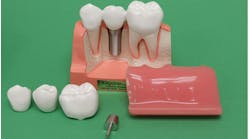The national COVID-19 Public Health Emergency (PHE) and related emergency funds expired on May 11, 2023, leaving millions at risk of losing Medicaid and Children’s Health Insurance Program (CHIP) coverage during this process known as Medicaid redetermination. With the end of the PHE, beneficiaries are no longer guaranteed continuous coverage.
The Kaiser Family Foundation (KFF) estimates that about 15 million people will lose their Medicaid coverage as states work through their eligibility checks.1 Georgetown University Center for Children and Families (CCF) estimates that as many as 6.7 million children could lose coverage as a consequence of the unwinding.2
While states can terminate Medicaid enrollment for adults and children who are no longer eligible, there are a significant number of beneficiaries who are being dropped in error even though they qualify for coverage. These errors are occurring due to administrative mistakes on the part of beneficiaries, parents, guardians, or, in some cases, state Medicaid agencies. By most accounts, as many as 75% of those dropped would have continuous coverage had administrative issues been addressed.
All this presents challenges for the Medicaid-eligible population who often do not have the level of internet access, education, and support of other individuals, which also has major implications for underserved children. Fifty-four percent of all children in the US are insured through Medicaid or CHIP, and once dropped, Medicaid beneficiaries often skip necessary preventive care, which leads to deteriorating oral health, greater complexities, increased school absences, and emergency room visits.3 Importantly, oral health problems account for one-third of grade school absences among children.4
You might also be interested in:
Value-based payment alignment: A case study for oral health
DSOs offer opportunity for dentists to serve communities in need
The impact of Medicaid unwinding
In August 2023, CFF highlighted a net enrollment decline of more than 695,000 children among the 21 states that have posted data since beginning terminations.5 Further analysis from CFF found that children are more likely to be disenrolled for procedural reasons—such as parents or guardians not updating coverage or contact forms—and are likely to experience gaps in coverage before re-enrolling. Because children of color make up a disproportionate share of Medicaid enrollees and often face additional barriers to maintaining coverage, CFF predicts disenrollments may widen racial and ethnic disparities in health insurance coverage and restrict access to care.
This problematic issue is exacerbated by the lack of access to assistance and support as evidenced by overburdened call centers associated with the Centers for Medicare & Medicaid Services (CMS). They found that some states’ wait times were more than 30 minutes, leading nearly 50% of people to abandon the calls.6
As a nation, we must reexamine the critical implications of the younger generations losing health insurance coverage, especially as it relates to dental health coverage. Congress intended to assist children to maintain coverage when they passed the Medicaid Continuous Coverage Provisions in the Consolidated Appropriations Act 2023. Unfortunately, the provisions that protect children by providing 12-month continuous coverage do not kick in until April 2024, resulting in a significant gap despite the legislation’s intent.
Oral health is health care, too
Serving disadvantaged communities has long been a hurdle in the dental health community, with only 43% of US dentists accepting Medicaid or CHIP plans for children, and 67% of them not ever treating a single child.7 Oral health is health care, too, and work still needs to be done to expand access to care and improve the trajectory of dental health in America for children and adults.
Dental health-care providers, such as Benevis, that choose to serve disadvantaged families have already felt the impact of the Medicaid unwinding process. In the five months since the PHE provisions ended, Benevis had thousands of patients cancel their appointments for routine exams and follow-up care due to termination of their coverage.
To avoid disruptions in dental services, we must maintain continuity of care by ensuring that children have insurance so they can receive preventive and corrective treatments without interruptions. From a cost perspective, preventive dental care is significantly more economical than treating advanced dental problems. By facilitating access to regular check-ups, cleanings, and other preventive measures, Medicaid or CHIP dental coverage can promote cost-effective health-care delivery and help shift the focus from reactive, expensive treatments to proactive measures that can save both financial resources and children's oral health.
The path to equitable oral health care
When reviewed carefully, redetermination could contribute to a healthier and more equitable future for all children and their families who battle financial, educational, and geographical barriers. Stakeholders involved in the care of children should be working together to address this crisis. As a nation, we should take the following steps:
- Implement a pause on redetermination of any coverage involving children.
- Effect a retroactive enrollment for those dropped.
- Provide a bridge until the legislative provisions take effect in April 2024.
- Grant additional support through call centers and outreach.
We must recognize the need to reach out to Medicaid and CHIP patients in every state to ensure they understand this redetermination process and what is at stake if simple paperwork is not updated. That way, we can continue to tackle the coverage barriers for dental care that persist nationwide, especially in marginalized communities where the need is often greatest, to expand routine dental care.
By safeguarding access to dental services, promoting continuity of care, preventing long-term consequences, reducing disparities, and enabling cost-effective prevention, we can contribute to the well-being and overall development of vulnerable children.
As we continue to advocate for improved health-care access and equity, it is crucial to recognize and support the importance of Medicaid redetermination in enhancing dental care delivery for the youngest population.
Editor's note: This article appeared in the January 2024 print edition of Dental Economics magazine. Dentists in North America are eligible for a complimentary print subscription. Sign up here.
References
1. Brooks T, Gardner A, Yee P, et al. Medicaid and CHIP eligibility enrollment and renewal policies as states prepare for the unwinding of the pandemic era continues enrollment provision. Kaiser Family Foundation. April 4, 2023. https://www.kff.org/medicaid/report/medicaid-and-chip-eligibility-enrollment-and-renewal-policies-as-states-prepare-for-the-unwinding-of-the-pandemic-era-continuous-enrollment-provision/
2. Alker J, Brooks T. Millions of children may lose Medicaid: what can be done to help prevent them from becoming uninsured? Georgetown University. February 17, 2023. https://ccf.georgetown.edu/2022/02/17/millions-of-children-may-lose-medicaid-what-can-be-done-to-help-prevent-them-from-becoming-uninsured/
3. Alker J, Osorio A. Child uninsurned rate could rise sharply if states don’t take proceed with caution. Georgetown University. February 1, 2023. https://ccf.georgetown.edu/2023/02/01/child-uninsured-rate-could-rise-sharply-if-states-dont-take-care/
4. CDHP dental health project. CDHP Dental Health. https://www.cdhp.org/
5. What is the impace of unwinding on Medicaid enrollment? Georgetown University. https://ccf.georgetown.edu/unwinding-enrollment-data/
6. Medicaid and CHIP unwinding operations snapshot—April 2023 data. CMS. chrome-extension://efaidnbmnnnibpcajpcglclefindmkaj/https://www.medicaid.gov/sites/default/files/2023-07/medicaid-chip-unwinding-oper-snap-april2023-07072023.pdf
7. Dentists who participate in Medicaid. Who are they, where do they locate, how do they practice? September 2022. https://www.ada.org/resources/research/health-policy-institute/coverage-access-outcomes/dentists-in-medicaid
Bryan Carey is the CEO of Benevis, a dental health-care delivery organization for practices focused on delivering life-changing oral care and orthodontics to underserved communities. He has spent more than 20 years improving and streamlining health-care services for both providers and patients, ultimately making health care more equitable and accessible to those who need it most. Carey has an applied baccalaureate degree in economics from Georgetown University and an MBA from The Wharton School.






